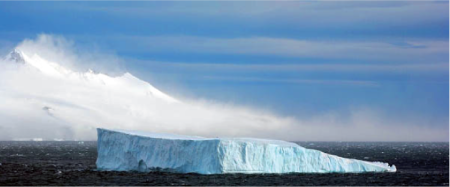| SEARCH |
-

Nov 17, 2015
Reflections on a three-decade legacy
The International Geosphere-Biosphere Programme (IGBP) will come to a close at t...
-
Nov 17, 2015
Use of and access to content on this website
Text and images produced by IGBP in house are free to use with appropriate credi...
-
Nov 12, 2015
Bella Gaia performance and panel discussion to mark IGBP's closure
A musical performance by Bella Gaia will celebrate the achievements and legacy o...
-

Towards Future Earth:
evolution or revolution?
During its three decades of existence, the International Geosphere-Biosphere Pro...
-
A personal note on IGBP and the social sciences
Humans are an integral component of the Earth system as conceptualised by IGBP. João Morais recalls key milestones in IGBP’s engagement with the social sciences and offers some words of advice for Future Earth.
-
IGBP and Earth observation:
a co-evolution
The iconic images of Earth beamed back by the earliest spacecraft helped to galvanise interest in our planet’s environment. The subsequent evolution and development of satellites for Earth observation has been intricately linked with that of IGBP and other global-change research programmes, write Jack Kaye and Cat Downy .
-
Deltas at risk
Around 500 million people worldwide live on deltas, but many of the world's deltas are sinking due ...
-
Climate change: the state of the science
A new data visualization released on the first day of the plenary negotiations at the UNFCCC’s clima...
-
Climate Change:
the State of the Science
Videos now online from the Stockholm public forum to mark the launch of the IPCC's climate report, 2...
Comparative analysis of marine ecosystems: international surplus production modeling wokshop
Link J S, Megrey B A, Miller T J, Essington T, Boldt J, Bundy A, Moksness E, Drinkwater K F and Perry R I
Vol 6; No 6: pp. 723-726

Understanding the drivers that dictate the productivity of marine ecosystems continues to be a globally important issue. A vast literature identifies three main processes that regulate the production dynamics of such ecosystems: biophysical, exploitative and trophodynamic. Exploring the prominence among this ‘triad’ of drivers, through a synthetic analysis, is critical for understanding how marine ecosystems function and subsequently produce fisheries resources of interest to humans. To explore this topic further, an international workshop was held on 10–14 May 2010, at the National Academy of Science's Jonsson Center in Woods Hole, MA, USA. The workshop compiled the data required to develop production models at different hierarchical levels (e.g. species, guild, ecosystem) for many of the major Northern Hemisphere marine ecosystems that have supported notable fisheries. Analyses focused on comparable total system biomass production, functionally equivalent species production, or simulation studies for 11 different marine fishery ecosystems. Workshop activities also led to new analytical tools. Preliminary results suggested common patterns driving overall fisheries production in these ecosystems, but also highlighted variation in the relative importance of each among ecosystems. .

IGBP closed at the end of 2015. This website is no longer updated.
-

Global Change Magazine No. 84
This final issue of the magazine takes stock of IGBP’s scientific and institutional accomplishments as well as its contributions to policy and capacity building. It features interviews of several past...
-

Global Change Magazine No. 83
This issue features a special section on carbon. You can read about peak greenhouse-gas emissions in China, the mitigation of black carbon emissions and the effect of the 2010-2011 La Niña event on gl...
-
INTERGOVERNMENTAL PANEL ON CLIMATE CHANGE:
How green is my future?
UN panel foresees big growth in renewable energy, but policies will dictate just how big.
-
UK:
'The Anthropocene: a new epoch of geological time?'
Royal Society, Philosphical Transactions A


















